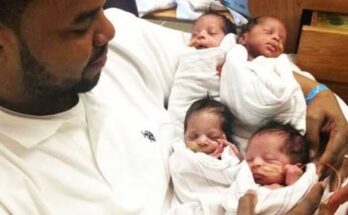
The death of conservative activist Charlie Kirk has ignited a wave of outrage, grief, and political reflection. Yet in the aftermath, attention has also turned toward someone who rarely appeared in the spotlight alongside him—his father, Robert W. Kirk.
Robert, a Chicago-area architect, has long been described as having worked on New York’s Trump Tower, a detail many supporters and critics alike admitted they had never connected to Charlie’s later alliance with Donald Trump. As mourners traded old clippings and biographies ahead of the 31-year-old’s memorial at State Farm Stadium in Arizona, curiosity swelled around the low-profile parent of a man whose professional life unfolded almost entirely in public view.
Published profiles consistently portray Robert as a respected but private figure. People magazine, echoing NBC News, summarized that Charlie “was raised in a politically moderate household” by a mother who worked as a mental health counselor and a father who “was an architect whose firm designed the Trump Tower in New York City.” The Washington Post likewise kept its obituary simple, noting only that his father was an architect and his mother a counselor—a reminder that, unlike their son, neither parent sought the spotlight.
Mentions of Robert have usually come secondhand, often limited to verifying his profession. Charlie Kirk’s own Wikipedia page contains the line that his father “was involved in the construction of Trump Tower,” a phrase repeated across news articles and rediscovered in viral “did you know?” posts after the assassination. The connection between the Kirk family and Trump’s iconic skyscraper—years before Charlie became one of Trump’s most visible supporters—added a layer of intrigue, though mainstream coverage has treated it more as a biographical footnote than a defining influence.
In the days following the murder, “who are his parents?” explainers proliferated. Outlets cited public records to describe Robert as the owner of an architecture firm specializing in residential work, a career that reflected quiet professionalism rather than political ambition. Both Robert and Charlie’s mother, Kathryn, remained steadfastly private as their son rose to prominence. People put it plainly: “His parents are more private, even though his career path put him in the public eye.”
Charlie grew up in the northwest suburbs of Chicago, specifically Prospect Heights, where he attended Wheeling High School. There he served as varsity basketball captain and earned the rank of Eagle Scout before briefly attending Harper College and leaving to build Turning Point USA. Local media like the Chicago Sun-Times chronicled his youth long before his national prominence. These reports painted a picture of a household more moderate than the firebrand conservatism their son would later embrace.
Robert Kirk himself left few public quotes. One resurfaced line, from a 2013 Daily Herald interview, stands out: “He was always more clear on his surroundings and always better at questions. Always better able to understand what’s happening than your typical kid.” That remark, made years before Charlie became a household name, now reads as one of the rare glimpses into a father’s perspective—quiet, proud, and reserved.
The contrast between father and son is difficult to ignore. Charlie initially questioned Trump during the 2016 primaries but soon emerged as one of the president’s fiercest defenders, transforming Turning Point into a youth-mobilization powerhouse and advising Trump allies. Meanwhile, Robert’s Trump Tower connection—though often repeated—remained an aside, a line on a résumé rather than a political stance.
Even in the aftermath of the assassination, Robert’s profile stayed low. Fact-checkers clarified that he is still alive and continues to lead his architecture firm, but he has not sought public attention. Memorial coverage emphasized federal-level security and appearances by national political figures rather than family members, consistent with the Kirks’ long-standing preference for privacy.
For many, the rediscovery of Robert’s biography underscores how audiences instinctively reach for family details when a public figure dies. But in Charlie’s case, the “family bookshelf” is sparse: an architect father, a counselor mother, suburban roots, and a decade-old sentence capturing a boy’s sharp awareness.
In the end, Robert W. Kirk remains what he always was—an accomplished architect who kept his distance from the political stage. His son’s career, cut short in tragedy, belonged to the public. His own life has remained deliberately quiet. And perhaps the most enduring insight he offers is still that single line about a young Charlie: a child who was “always better able to understand what’s happening than your typical kid.”


